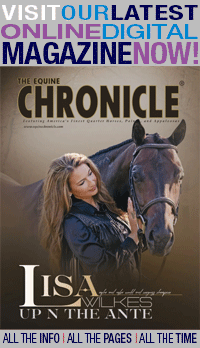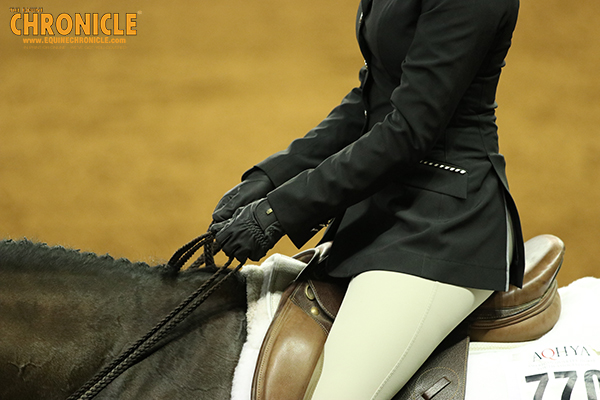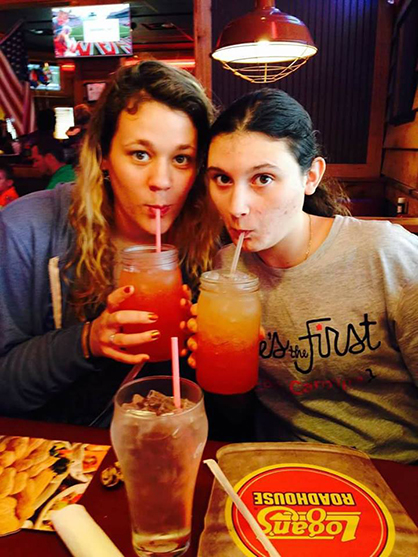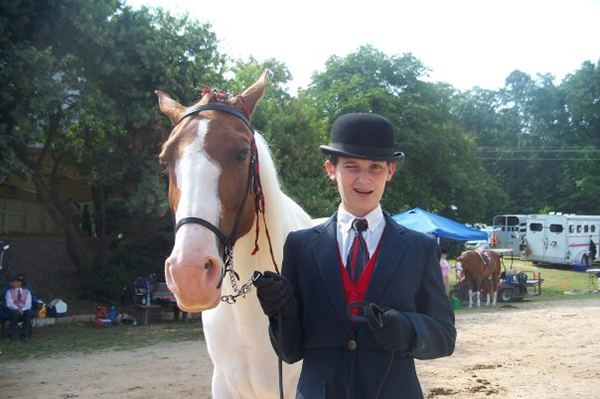I Don’t Ride Horses Anymore, But This is How They Prepared Me For Life
The first time I rode a horse was when I was six. My mom thought my sister and I should take horseback riding lessons to distract us from her impending divorce from our father, so we drove up to Maple Ridge Farm in Roanoke Rapids, North Carolina to take our first lesson. I was enamored with every horse I met. I was struck by their majesty and the depth of mutual understanding I saw in their eyes.
As a shy little girl with a head full of Black Beauty-esque stories, I was determined to connect with which ever horse I got to ride. If you’ve ever been to a barn that has a “beginner’s horse,” you know that they aren’t really the type to get connected right off the bat. It didn’t stop me from trying, though.
My parents bought my siblings and I a horse after their divorce, and I was in love. I even once told my mom that I would die for that horse, which went over as well as one would expect it to. Shortly afterwards, when I was about seven or eight, I rode in my first horse show with my trusty steed, Regal. It was a local Halifax County horse show, with relatively small class sizes, trailers parked everywhere, and the smell of concession-stand hot dogs in the air. It was an experience unlike anything I had ever experienced before, and I came to love the communal culture of horse shows just as much as the actual riding itself.
Flash forward to when I was about 15 years old and we still had Regal, but we had added some more, shall we say, competitive horses to our little herd. Regal was a kind, older horse; but, because of his treatment as a foal, he had no idea how a walking horse would normally gait, and he certainly didn’t know how to rack half the time. He just trotted, and he hated the hustle and bustle of horse shows. So, I rode Karma, a young and beautiful Walking Horse mare, and my sister rode Peanut, a big sorrel Quarter Horse with terrible conformation, but a big heart. My sister and I fed the horses every morning before school and every night after band practice. It was part of our daily ritual, and it was fun for us. We were showing on the Williamston show circuit, the 4-H State Show Circuit, and every now and again some other random show that would be held in the NC State Fairgrounds or wherever else. To be completely honest, neither of us were that competitive, but we had both earned some nice trophies and plenty of ribbons at that point, and horses became a way for my sister and I to bond. None of my friends really understood what I did with horses. All they knew was that I was the only girl that showed up to school with hay in her hair.
I was an incredibly anxious kid and teenager. Because my life seemed to be enveloped in constant chaos or impending doom (which anyone with a severe anxiety disorder can relate to), I felt like I needed to be an emotionally stable anchor, staying calm and peppy anytime someone else was around. I would later on in life be diagnosed with Major Depressive Disorder, Obsessive Compulsive Disorder, and Generalized Anxiety Disorder. When I was a kid, I didn’t know what was happening. I just knew that I didn’t want whatever this was to swallow me whole. If I were to get upset, who would keep everyone else from getting more upset?
I couldn’t talk to friends or family because of this deeply held notion, but I could talk to my horse. Some of my fondest memories are walking around to warm up with Karma or Regal before a show, just talking to them about my life, and telling them how much they meant to me. The other riders probably thought I was crazy, but I didn’t care. I had never felt so connected to another living being in my life. I got to talk to them, groom them, spend all day with them, and then hang out with my mom and sister after we were all dirty and tired from a hard day’s work. It was so gratifying. Those horses were my emotional anchor in the storm that was my mind.
Bullying is something that has been talked about quite a bit recently, especially with the popularity of social media usage worldwide. I think most of us have been belittled or teased at some point in our lives, but there is no time when we are quite as vulnerable as when we are adolescents and children. Because of my anxiety and the sudden and rapid weight loss I experienced the summer before my seventh grade year, I became a target for rumors and snide remarks. My OCD had become fixated on food and how I ate things, so lunchtime was a nightmare for me in middle and high school. Even at my riding lessons, I could hear whispers about my new size between the riding instructor and my mom, between the other girls and my sister, and between the other riding moms. There were rumors that I was bulimic or anorexic, and everyone kept asking me how I lost so much weight and why I ate like a freak. All of this just made my world feel more and more overwhelming. I felt like everyone was judging me, and I had never felt so alone.
When we would get home from school, I would try to stop thinking about the other kids, how I looked, how I ate, and just focused on sitting on Regal’s back and stroking his neck while he ate his post-grain hay, even though I knew he would rather I didn’t. I would focus on what I would tell him about my day, focus on how soft and gentle his big brown eyes looked when I braided his forelock, and focus on how peaceful just being with him was. I would look forward to giving him an alfalfa cube and the feeling of his big lips wiggling on the palm of my hand as he scooped it up into his mouth. I would daydream about the big house I would get us someday with a wide pasture and one of those doors the horses could stick their heads through so they could say good morning. That horse was my world, my rock, and I could never thank him enough for it.
The horse show became a place where I got to hang out with my horse and have a hard day’s work that would bond my sister, my mom, and I. My mom cared about winning, my sister cared about winning, but I became apathetic to it, because I just wanted to be with my horse and to be with horse people. I understood horses and horse people much more than I did people outside of this world, and horse shows began to feel like vacations to another dimension that made a lot more sense.
These show environments not only provided a bit more of a safe haven for me, they also taught me a lot about hard work, perseverance, and independence. I had to get myself and a horse looking presentable and show ready before my first class, and that takes discipline, hard work, and time management skills. When you get thrown off in a show ring, it takes courage and dedication to get back in the saddle and ride out of that same ring in front of everyone that just watched you fall. It takes humility to acknowledge when another rider is more deserving of an award than you are. It takes compassion to move forward with empathy instead of malice when you feel someone has been rude or endangered you with their reckless riding, because you understand that you can never know what someone else is going through at any given time. These were all important lessons that riding in horse shows taught me.
As I started getting older and more serious about studying music, I became obsessed with practice. I was constantly anxious about any time I perceived as being “wasted” not working towards my goal of being a professional flutist. Therefore, I started riding and showing less. I started resenting having to feed or ride horses, and I just wanted to distance myself from that world. When I went to university to study flute performance, my life was consumed by a need for disciplined daily practice, rehearsal, and study. So, I soon had to sell my beloved Regal and Karma so that they could go to homes where their person would be there for them. I cried for days. I couldn’t even be there to say goodbye to them, because I didn’t want to breakdown in front of everyone. As hard as that decision was, I never doubted that it was the right one to make. As much as I hate to admit it, a bit of weight was lifted from my shoulders when my childhood companions found new loving homes. I stopped going to shows, fell out of touch with the people I used to ride with, and the only connection I have now is my casual keeping up with Regal and Karma through their new owners’ social media accounts.
Today, I have two bachelor’s degrees, one in Flute Performance and one in Hispanic Studies. I just finished my masters in Musicology at Florida State University, and I’m about to embark on a PhD program in Ethnomusicology at the University of Texas at Austin on a mentorship fellowship. Interacting with a horse is a rare treat for me nowadays, though I miss being around them daily. When I talk with my peers, most of them focused their entire lives on their art and had never been close with a large animal before. In fact, many of them spent most of their youth indoors playing video games, reading, or practicing. Some might think that I gained nothing from those horse-focused years that has helped me in my current academic endeavors. However, those people would be wrong.
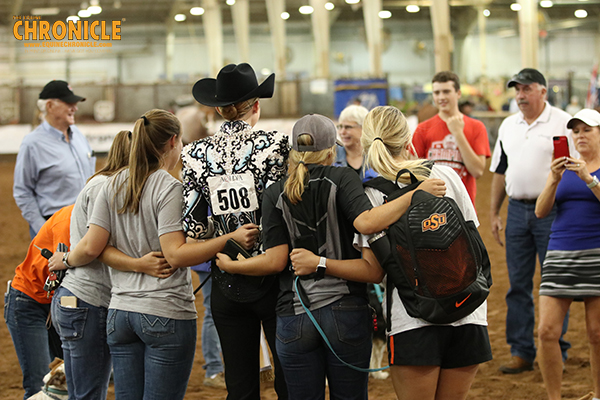 Much like being able to play an instrument, having the financial ability to ride and show horses is a privilege, and it’s one that I’m very thankful to have had. I didn’t go into a field that directly called upon my experience in the show ring, but my experiences in the show ring and around the barn are what made me who I am today. With horse shows, I had a built-in community that I could feel part of without having to establish those bonds alone. We bonded over horses, cleaning stalls, braiding manes, brushing hair, and just the daily work we did to care for our horses. I bonded with my sister and the other girls in our barn through an intimate understanding of each other’s experiences with our hooved companions. We bonded through jokes about past experiences in the show ring and in our shared sense of living double lives so as not to alienate our friends at school that knew nothing about horses.
Much like being able to play an instrument, having the financial ability to ride and show horses is a privilege, and it’s one that I’m very thankful to have had. I didn’t go into a field that directly called upon my experience in the show ring, but my experiences in the show ring and around the barn are what made me who I am today. With horse shows, I had a built-in community that I could feel part of without having to establish those bonds alone. We bonded over horses, cleaning stalls, braiding manes, brushing hair, and just the daily work we did to care for our horses. I bonded with my sister and the other girls in our barn through an intimate understanding of each other’s experiences with our hooved companions. We bonded through jokes about past experiences in the show ring and in our shared sense of living double lives so as not to alienate our friends at school that knew nothing about horses.
As anyone who rides horses is sure to tell you, riding on the back of a horse is a very meditative experience. You look through pricked ears and see an endless world of possibilities ahead of you. Some are good, and some are bad; but, on the back of a horse, nothing else matters except you and your communication with this animal. It’s a mutually dependent relationship. You need the horse to carry out commands, but you also have to listen to the horse’s body cues and needs so that they can understand and trust you. There is something so surreal about feeling an animal ten times your size contract and relax their powerful muscles beneath you. You can physically feel when they are tense. You develop a sort-of sixth sense about your horse and predicting their actions, and they do the same for you. I have never engaged in something, outside of focused music practice, that’s totally engrossing of your mind and body. You are taught to be aware of your body and mind and how to control them. Horse people are detail-oriented, because we need to be- we must be- observant for our safety and for our horses’ safety.
Now, no one knows me as the girl with hay in her hair who wears muck-boots to school. In fact, most people have no idea that I had such a long history and deep passion for horses. Today, I work as a tutor for the student athletes at Florida State University. I have taught music to underprivileged kids in North Carolina. I have worked with Americorps in Raleigh, NC to further develop youth development programs for impoverished communities. I have presented my research on the effects of music and sound in children’s classrooms internationally. I hope to one day hold a professorship at a university that could accommodate an outreach program that directly addresses the needs of the community and breaks down the barriers of elitism and classicism between academia and the general public. I want to help construct safe spaces for children to express themselves and feel valued, so that they can have what I could only find in my quiet time with Regal all those years ago.
Despite my moving to the city and being away from the barn, there is nothing that is more sublime than the sweet smell of hay overwhelming you early in the morning, when the world is still quiet and the sun has just peeked through the clouds. I miss my early mornings and late nights with horses, when the dew was still on the grass or the cicadas had begun their nightly song. My closest friends still have a hard time understanding why I tear up when I talk about how much I love the feeling of prickly horse lips wiggling on my palm while they lap up a treat, or how much I love how their ears flick back just a tiny bit every time they gulp water, or how they turn their head to lean into you when you have found the perfect spot to scratch for them.
I love these things because they inspire me and bring me joy. These majestic and powerful animals also have these quirky and adorable traits that, for lack of a better term, humanize them. To me, and I think to most horse people, a horse is not just an animal- it is a friend, a companion, and a collaborator. They are part of the family. The fact that horses can find in me someone they feel comfortable being their silly selves around, even though they cannot communicate with me verbally, gave me hope for my own future.
To this day, when I feel insecure in my work or in my self-image, I will imagine that I am with a horse in the ring, showing confidence and elegance in my posture, while still working hard and persevering. For me, horses in the show environment illustrate beings that have the confidence to be both unabashedly strong, while staying true to their personalities, which is something I think we should all aspire to every single day.
If you’d like for your writing to be featured on EquineChronicle.com, like Elisa, email B.Bevis@EquineChronicle.com.
